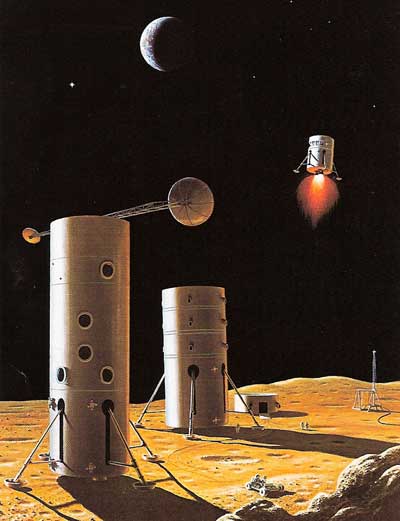The Archive Series ~ Originally published November 17th 2008
Four years back I wrote the post set out below. I still feel the same regarding the future. Recent posts about comic books published in the 1950s reflect that. I was watching a documentary on television entitled “Where’s My Robot?“. Will not go into too much detail. Essentially the presenter went on a quest around the world looking for the robot that he had wanted as a child. Robots of varying capabilities in laboratories around the world were investigated. Researchers still have a long way to go. I wonder if this area of research is useful. Robots that can function in hazardous environments will be practical. Yet I wonder, are we spending money in the right places?
Given the challenges that the human race face with global climate change, for example, I wonder if I should change tack and begin teaching students about the past, the present and also the future. As a child I was so looking forward to the future. Well, the future has arrived and it has not matched my youthful expectations.
Growing up I had an interest in astronomy, space exploration and the future. I enjoyed reading books that provided glimpses into the future. When I turned 10 my father gave me a book entitled “Our World In Space and Time“. It was published in 1959. I have scanned a couple of images from the book in order to illustrate my thoughts. The book was essentially an overview of the the planet earth, its place in the universe and mankind. It was anglo-centric and written with an “imperial” view of the globe and its residents.
The overall impression it gave of the future was optimistic. There was no real hint that the resources of the planet were finite. In fact one of the chapters was entitled, “Forests that cover a quarter of the earth”. The chapter mentions that although there is a timber shortage in Europe and that “western Europe still needs more timber than it can easily come by.” Timber could be easily sourced from elsewhere. The image below faced the chapter. As you can see it shows forest clearing. It is depicted as a manly and exciting adventure.
The United Nations reports that about half of the world’s forests had disappeared and that most of that loss occurred during the three decades leading up to 1997. Afforestation projects are reversing the trends in some areas but it is not enough. “Deforestation, mainly due to conversion of forests to agricultural land, continues at an alarmingly high rate – some 13 million hectares per year.” [Global Forest Resources Assessment 2005].
I live in Australia. It has the world’s fifth highest ecological footprint in the world. We are one of the greediest nations on the planet per capita. Shame. We need to do something.
The same book provided an optimistic view of space exploration as well. That dream has certainly not come to pass. The book and myself envisioned the 21st century with significant orbiting space stations, regular manned trips to the moon, bases on the moon, explorers on Mars and manned journeys making their way to the outer reaches of the solar system. Admittedly the text book was published in 1959 and Yuri Gagarin had not made the first manned space flight. But the vision seemed so possible.
In 1973 I bought a book entitled Challenge of the Stars. It was published in 1972. It set out a series of predictions regarding the exploration of space by mankind. One of them was the establishment of a base on the moon by the 1990s. The illustration below sets out their ideas for life on the moon about 1990. It all seemed so easy back in 1973.
I watched Stanley Kubrick’s 2001 A Space Odyssey as well during the evening. It presented a magnificent view of space travel in 2001 with regular space flights by Pan American Airways, massive space stations (that resembled a five-star hotel within), a moon shuttle, large bases on the moon, inter-planetary travel and so on. It was a grand vision. In 1968 it all seemed to be within our grasp. It seemed that all of that could be achieved. [I am not advocating that the human race attempt to achieve these goals now. More important matters are pressing.]
What has happened? The Clavius moon base illustrated in 2001 A Space Odyssey could not even be built on the planet earth in 2008 let alone on the moon. This planet is too busy building massive shopping centres while others starve. Nothing shits me more than seeing news reports about food eating contests, world record hot-dog consumption attempts and the like. I think that is obscene, particularly when one is likely to see images of starving or poverty stricken children during the same news bulletin. What is wrong with the human race?
In recent weeks wealthy nations around the world have raised nearly $USD5,000 billion to fight theglobal financial crisis. I am not an economist but one wonders if the planet’s economy was better managed in the first place surely that $USD5,000 billion could have been put to use preventing some of the woes that face us in the 21st century? Where did that money come from?
Governments around the world are tightening their budgets and going into deficit as well. Will they also reduce their proposed budget allocations originally designed to combat global climate change? Where do all of those promises stand now?
Imagine if governments no longer had to include the military in their budgets? The money could be spent on cleaning up the planet and feeding people. Of course, if that was to happen there would be military coups on every continent. The military would not allow it to happen.
There are times when I feel guilty. I have this laptop, a digital camera, a TV, etc. What is my ecological footprint?
The optimistic vision of the 21st century that I grew up with as a child is not coming to pass. The 21st century is beset with famine, poverty, climate change and a growing chasm between the rich and the poor.
I feel that we should be teaching students a range of values where materialism is not paramount. Community, resilience, sharing and giving. Positive values for the future. [I hope I do not sound like a politician. It sounds like something Kevin Rudd would say.] Yes, we share by example in our schools yet I feel that a more substantial slice of the curriculum should be devoted to teaching our students and ourselves how to really live on this planet.
It is the only planet that we have and given that by 2050 mankind will require the resources of 2 or 3 similar planets to satisfy the needs of the human race one wonders what will be left for the children of our current crop of students? Presently it is taking the planet 1.2 years to regenerate what is taken by mankind in a single year.
We need a new subject. It’s focus should be on the future. Not sure what to name the subject. But we need it. Maths, English, Music, History, Art, Science, Geography, and… Life.
Addedndum. I was exploring the ABC web site and discovered this interesting clip on their new Fora site. I am yet to watch all of it however it fits in with my thoughts here to some extent. The video consists of a debate between Harvard historian Niall Ferguson and futurist Peter Schwartz about which of the two disciplines is the better: Historian or Futurist?











Recent Comments